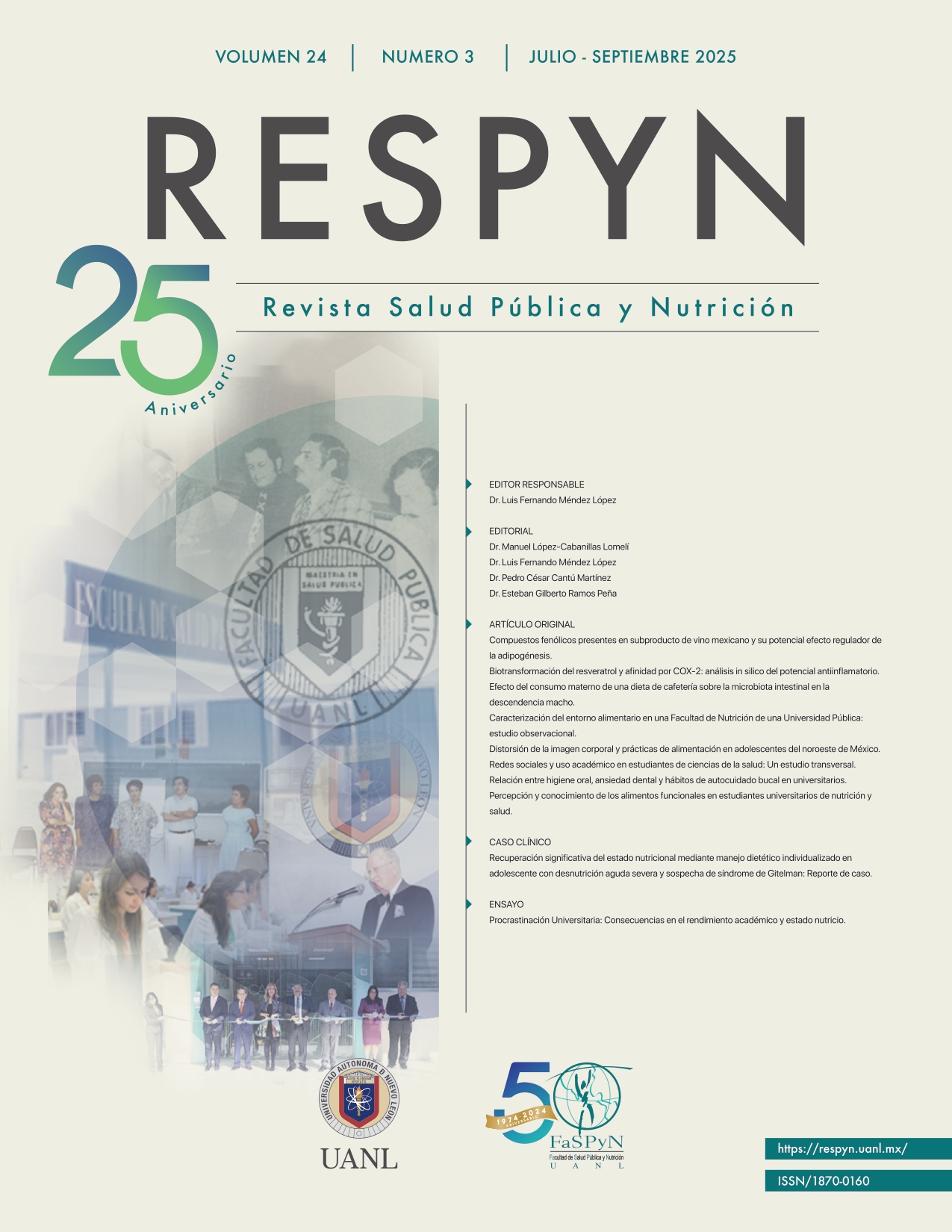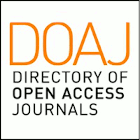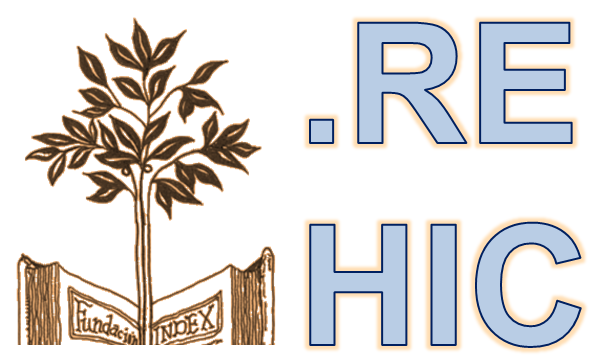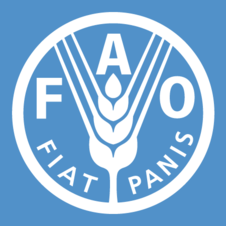Procrastination among health sciences university students: consequences for academic performance and nutritional status
DOI:
https://doi.org/10.29105/respyn24.3-881Keywords:
Procrastinación, Rendimiento académico, Estado nutricio, UniversitariosAbstract
Introduction: Procrastination has become an increasingly normalized tendency among university students. Although often associated with emotional, psychological, and social behaviors, its impact on overall health is undeniable. Postponing important academic tasks can lead to chronic stress, anxiety, and frustration, ultimately affecting not only academic performance but also eating habits and nutritional status. This essay adopts a sociological approach to understand procrastination as a structural and multidimensional phenomenon. From a socio-research perspective, it explores the relationship between procrastination and academic performance, as well as its potential connection to the nutritional status of university students. Objective: To analyze the causes and consequences of procrastination among health science students, and its relationship with academic performance and nutritional status, from a comprehensive and interdisciplinary perspective. Conclusion: Procrastination among university students is a complex phenomenon that affects both academic performance and overall health. Rather than a mere bad habit, it reflects structural and personal tensions. Addressing it requires multidisciplinary interventions involving mental health, nutrition, and pedagogy. Recognizing its systemic nature enables the development of more effective educational strategies. Promoting student well-being is essential in the training of future healthcare professionals.
Downloads
References
Balkis, M., & Duru, E. (2016). Procrastination, self-regulation failure, academic life satisfaction, and affective well-being: Underregulation or misregulation form. European Journal of Psychology of Education, 31(3), 439–459. https://doi.org/10.1007/s10212-015-0266-5 DOI: https://doi.org/10.1007/s10212-015-0266-5
Chauhan, H., Kumar, Y., Das, A., Pandey, S., Ghosh, T., Srivastava, A., & Thakur, Y. (2024). Health-related procrastination, occupational stress, and job insecurity among private school teachers. Mind and Society, 13(2), 25–32. https://doi.org/10.56011/mind-mri-132-20244 DOI: https://doi.org/10.56011/mind-mri-132-20244
Kim, K. R., & Seo, E. H. (2015). The relationship between procrastination and academic performance: A meta-analysis. Personality and Individual Differences, 82, 26–33. https://doi.org/10.1016/j.paid.2015.02.038 DOI: https://doi.org/10.1016/j.paid.2015.02.038
Sirois, F. M., Melia-Gordon, M. L., & Pychyl, T. A. (2019). “I’ll look after my health, later”: An investigation of procrastination and health. Personality and Individual Differences, 137, 187–192.
https://doi.org/10.1016/j.paid.2018.08.026 DOI: https://doi.org/10.1016/j.paid.2018.08.026
Solomon, L. J., & Rothblum, E. D. (1984). Academic procrastination: Frequency and cognitive-behavioral correlates. Journal of Counseling Psychology, 31(4), 503–509. https://doi.org/10.1037/0022-0167.31.4.503 DOI: https://doi.org/10.1037//0022-0167.31.4.503
Steel, P. (2007). The nature of procrastination: A meta-analytic and theoretical review of quintessential self-regulatory failure. Psychological Bulletin, 133(1), 65–94. https://doi.org/10.1037/0033-2909.133.1.65 DOI: https://doi.org/10.1037/0033-2909.133.1.65
Downloads
Published
How to Cite
Issue
Section
License
Copyright (c) 2025 Karina Janett Hernández Ruiz, Georgina Mayela Núñez Rocha, Guillermo Cano Verdugo, María Natividad Ávila Ortiz, Alejandra Berenice Rocha Flores

This work is licensed under a Creative Commons Attribution 4.0 International License.
The rights of the work belong to the author or authors, however, by sending it for publication in the Public Health and Nutrition Magazine of the Faculty of Public Health and Nutrition of the Autonomous University of Nuevo León, they grant the right for its first publication in between electronic, and possibly, in print to the Public Health and Nutrition Magazine. The license used is the Creative Commons attribution, which allows third parties to use what is published whenever the authorship of the work is mentioned and the first publication that is in the Public Health and Nutrition Magazine. Likewise, the author or authors will take into account that it will not be allowed to send the publication to any other journal, regardless of the format. The authors will be able to make other independent and additional contractual agreements for the non-exclusive distribution of the version of the article published in the Public Health and Nutrition Magazine (e.g., institutional repository or publication in a book) provided they clearly state that The work was published for the first time in the Public Health Magazine, Magazine of the Faculty of Public Health and Nutrition of the Autonomous University of Nuevo León.














